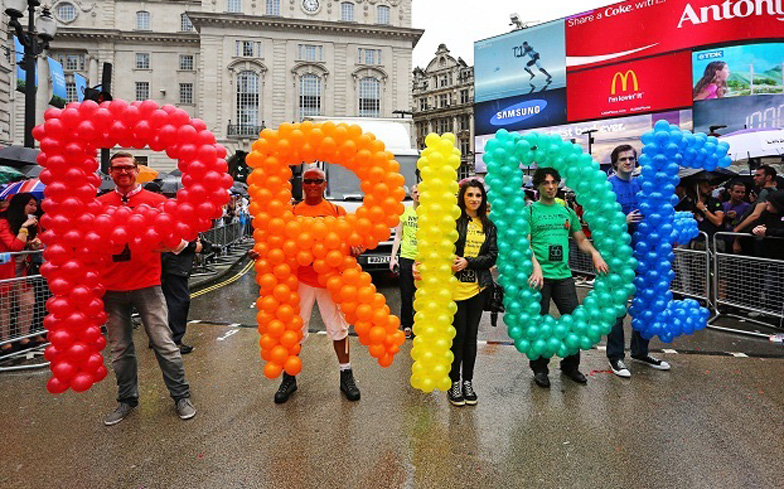
Gay conversion ‘therapy’ will be banned in the UK, the government has said.
The pledge comes as part of a new 75-point plan to improve the lives of LGBTQ people across the UK, which has been produced in response to a national survey of 108,000 members of the LGBTQ community, the largest of its kind.
According to the survey results, which were published by the Equalities Office on Tuesday 3 July, 2% of the LGBTQ community have undergone gay conversion ‘therapy’, while a further 5% have been offered it.
The practice, which has been discredited by the NHS and the World Psychiatric Association, refers to any attempt at changing a person’s sexual orientation or gender identity, and often involves techniques like electroshock therapy or prayer.
Elsewhere in the survey, it was found that 68% of those with a minority sexual orientation had avoided holding hands in public with a same-sex partner, while 70% said they had not been open about their orientation at times.
56% of trans men who took part in the survey said they had avoided expressing their gender identity out of fear of reaction from others, while the figure rises to 59% for trans women, and 76% for non-binary people.
Meanwhile, 40% of respondents said they had experienced an anti-LGBTQ hate crime.
“I was struck by just how many respondents said they cannot be open about their sexual orientation or avoid holding hands with their partner in public for fear of a negative reaction,” Prime Minister Theresa May said of the survey’s results.
“No one should ever have to hide who they are or who they love. [The plan will] set out concrete steps to deliver real and lasting change across society.”
The majority of the respondents to the survey identified as gay or lesbian (61%), while a quarter identified as bisexual, 4% identified as pansexual, 2% identified as asexual, and 13% identified as transgender.
£4.5m of funding will be allocated to the new LGBTQ plan, which will also push for inclusive Relationships and Sex Education in schools to ensure pupils feel supported “whatever their developing sexual orientation or gender identity”.
Other action points include ensuring LGBTQ people’s needs are met by the NHS, taking further action to tackle hate crime against the community, and increasing awareness of issues faced by trans, non-binary and intersex people.
Over 108,000 people responded to our survey on the experiences of #LGBT people in the UK. View the headline findings and our plans to take action. #EqualityBenefitsEveryonehttp://ow.ly/IdfJ30kMaQK pic.twitter.com/D1vvpJ1db6
— Government Equalities Office (@GEOgovuk) July 3, 2018
Co-chairs of Pride in London, Alsion Camps and Michael Salter-Church, welcomed the scale of the research but argued that the findings “aren’t new” for members of the LGBTQ community.
“We now expect action to follow quickly,” they said. “The measures set out need to have real teeth and there is a danger that events such as Brexit could delay legislative progress.”
LGBTQ activist Peter Tatchell echoed those views, saying the government’s plan is a “welcome start” but that it “falls short” on a number of issues.
“The biggest fail is the lack of any pledge to end the detention and deportation of LGBT+ refugees fleeing persecution in violently homophobic countries like Uganda, Iran, Russia, Egypt and Jamaica,” he said.
“Another big omission is the absence of any commitment to compensate gay and bisexual men who were convicted under past anti-gay laws. They suffered greatly; frequently being hit with huge fines. Some were jailed and beaten in prison.
“They often lost their job, income and home. Many suffered mental breakdowns. Their lives were wrecked for decades. The government’s unwillingness to include compensation in its Action Plan is a huge let down.
“The £4.5 million budget is derisory and insulting. It coincides with cuts in funding for sexual health clinics, which make it hard to get testing and treatment appointments. This is contributing to a rise in infections among gay – and straight – people.
“Banning gay conversion therapy is the right thing to do. It doesn’t work and it is deeply offensive to try to change a fundamental, natural and widespread human characteristic.”




